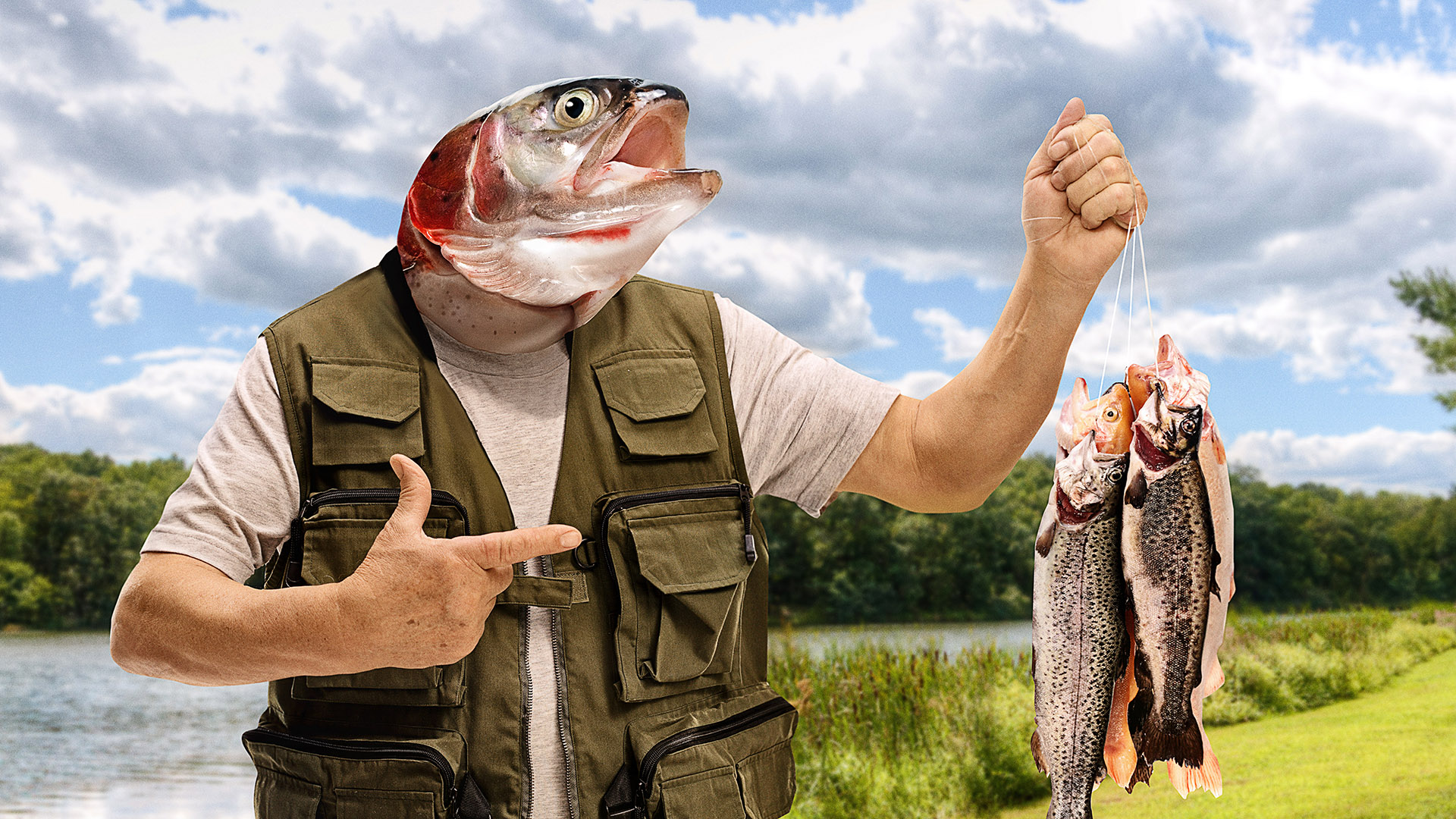What Catching, Killing, And Cooking Trout Taught Me About Food
Learning to catch, filet, and cook fish over a campfire is not something you can pick up from Google. You don't watch a 40-second YouTube video, grab a pole, and set out to foil-roast your trout—no matter how simple the outdoor lifestyle magazines make it seem. In the real world, there are guts. There is tangled fishing line. There is the cold weight of the rock in your right hand and the moving slick of the wet fish in your left hand, and the knowledge that the two have to meet with force. You need a real-world guide who's done it many times before. I was lucky enough to have one.
A few weeks ago, my fiance, Mike, and I went fishing in a glacial lake in Montana's Beaverhead Mountains, a lake accessible only by a steep scramble up a talus-coated mountainside with no trail—not an easy climb with a 25-pound backpack throwing off your center of gravity. We'd come to camp for the weekend, and Mike, an avid fly fisherman, was eager to fish the lake he hoped was full of trout and Arctic grayling. We saw none of the latter, but caught plenty of the former.
Proving my relative beginner's luck, I reeled in a trout under the still-cold light of the morning sun. The westslope cutthroat trout was sleeker than I expected when I lifted it out of the lake. A mountain breeze whooshed in my ears and chilled the tips of my numbing fingers as I crunched the fish's lips off my hook. Its olive and copper body writhed in my hand. It was so alive. The hope was to roast this trout on the campfire for breakfast, a treat I'd been looking forward to—not least of all because it meant we wouldn't be eating protein bars. Mike had demonstrated just a few minutes ago how to kill, filet, and clean the trout he'd caught. Now it was my turn.
I paused briefly as I held it, feeling the biology at work. I was a hungry organism advanced enough to have ensnared another organism, which I had the tools to turn into food. This fish had lived an unremarkable existence in a remarkable place: a glacial lake fed by melting snowpack and visited more often by elk, wolves, and bears than by humans. It was a fragile, precarious, unfathomable life, and I was about to end it. Rock hit bone and stillness followed. I recalled Mike's tutorial on how to gut and clean the trout, first by creating a small hole near its vent (an opening near its back fin), then a large incision down its stomach. The cut revealed egg sacs—a female fish, then. I removed its organs, scraped out its kidneys with the side of a blade the way I'd been shown. I rinsed the remains, brightening its scales so that they gleamed like reflectors along a highway.

We now had enough for breakfast. I carried our fish the few hundred yards back to camp and wrapped them in foil we'd stored in our packs, first flecking them with salt and pepper. (Even when backpacking makes every ounce count, I consider these, and whiskey, a necessity.) After some time in foil on the hot coals of the fire—the perfect window of time to make an AeroPress of coffee—the inner flesh of the trouts had turned milky pink and flaked off the bone. I lifted some of the flakes with my fingers, ignoring the fork I'd packed in my bag. The meat was sweet, delicate, slightly smoky, the freshest fish I'd ever eaten. It tasted pure, almost alive.
We mostly sat in silence. We'd eat quickly then remind ourselves to slow down. The fire's logs spat and cracked, the breeze sang in the tops of the trees. Beargrass provided our seat cushions, and the moon tucked itself in behind the blue sky. After a time, I felt not quite separate, no longer an intruder near the lake. Maybe I even forgot to be human for a bit, imagining what it would be like to eat such a gift without the aid of waterproof hiking boots and lightweight-frame backpacks and industrially produced sheets of aluminum foil. When I finally spoke again, it felt like screaming in church.
Native American cultures have long considered the process of killing and cooking animals a spiritual practice, and it's not uncommon for butchers, hunters, and farm-to-table chefs to speak of their reverence for the animals they dress and eat. I don't believe you need to face what you kill to appreciate this on a conceptual level, nor do I think it's reasonable to expect most people to grow or kill or catch their own food. I'm fortunate to have the chance to do so because I live where I do, and I had a knowledgeable guide to show me the way. If you've ever had such an opportunity, I hope you too felt, for a moment, something equally primal and true and delicious.
